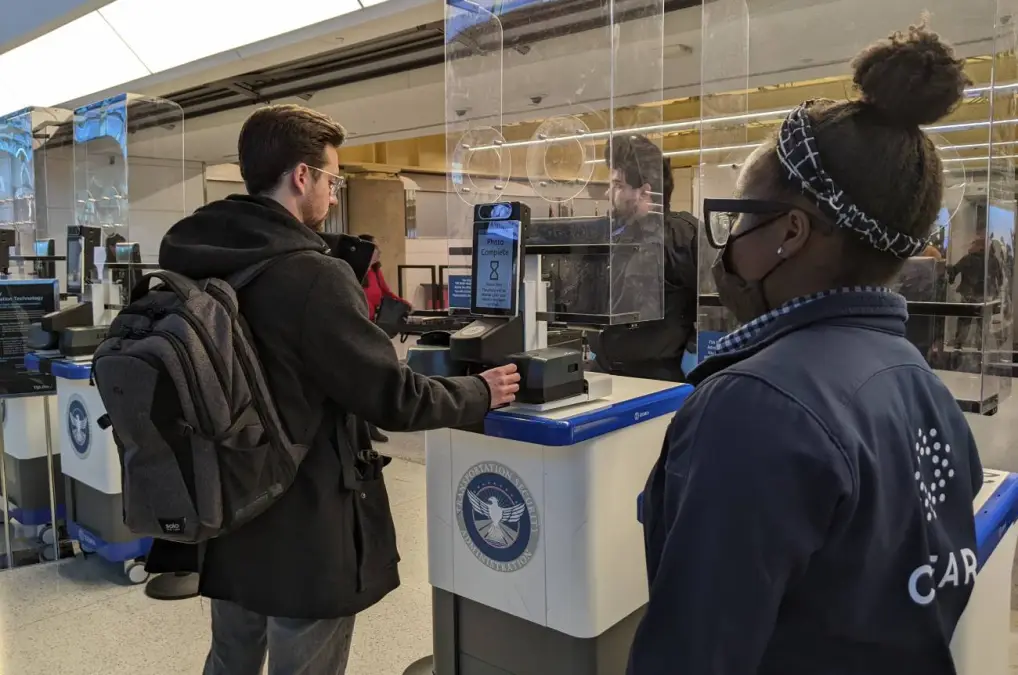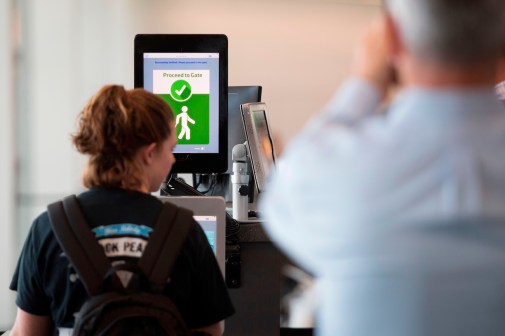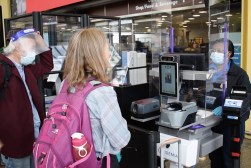California bill would ban airport line-skipping services like Clear

A bill being considered by California lawmakers would ban from state airports pre-screen biometric identity services like Clear.
State Sen. Josh Newman’s Senate Bill 1372 would ban public airports in California from entering into new agreements with private vendors to provide expedited security screening lines, like the biometric identity verification company Clear that is used in more than 50 airports across the country.
The bill, which was heard before the state’s Transportation Committee Tuesday, states that existing agreements for the use of Clear identity verification devices in California airports would be allowed to continue until they expire. Clear would have to operate a line separate from the other lines run by the Transportation Security Administration.
Creating a distinction between TSA-run security lines and Clear lines would help enable a more “consistent and equitable” experience at the airport for all travelers, Newman said in the bill’s comments.
“Moreover, counter to CLEAR’s claim of enhanced efficiency, while CLEAR may save time for its high-paying customers, it does so at the direct expense of average airport travelers who, having finally made it to the front of a security line, often find themselves being pushed aside to make way for a CLEAR subscriber,” Newman said.
Clear’s annual $189 membership allows travelers to bypass TSA checkpoints and be escorted to the front of security lines. This creates an advantage to accessing a government service, according to a legislative analysis of Newman’s bill.
“Consumers can often pay to jump lines,” the analysis read. “Southwest customers can pay to pre-board. Disneyland customers can purchase the Genie+ service to minimize the time standing in lines. Cutting TSA lines is different because the TSA is a government service, not a private service.”
Six airlines — Delta, United, Southwest, Alaska, JetBlue and Hawaiian — jointly authored a letter this month expressing concerns with the bill. Airlines said “the bill’s passage could further increase air carrier operating costs in the state, potentially resulting in increased fares or decreased service options.” They also claimed that Clear produces $13 million in annual state revenue.
If the bill passes as drafted, it would go into effect next January.





